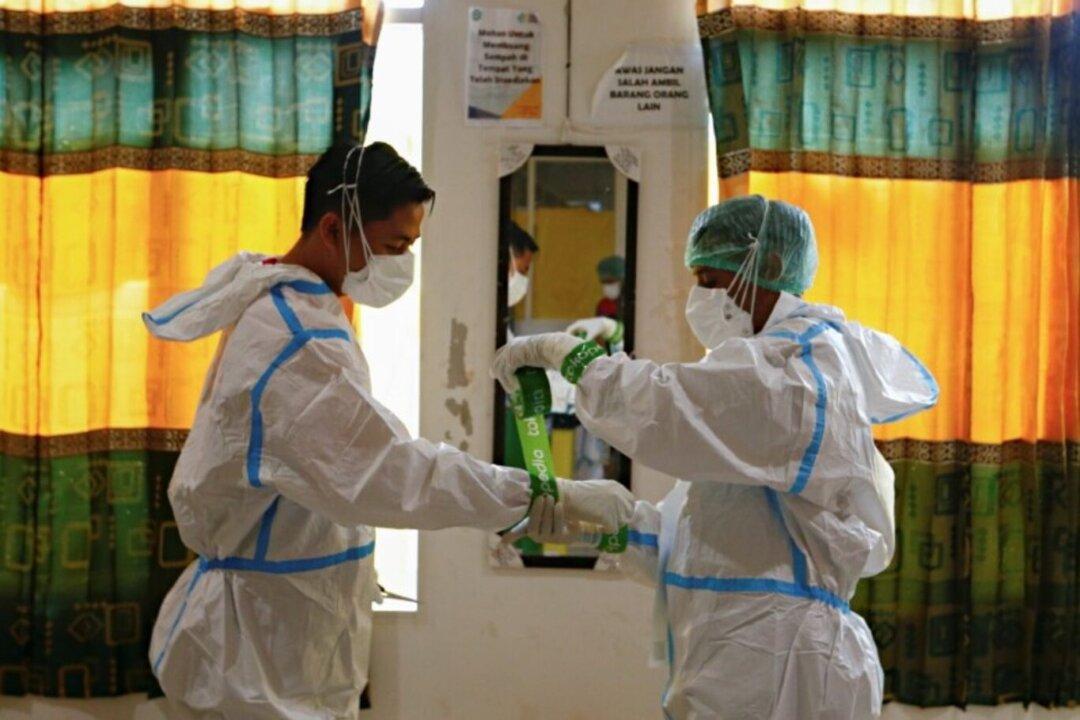JAKARTA—More than 350 doctors and medical workers have caught COVID-19 in Indonesia despite being vaccinated with Sinovac, and dozens have been hospitalized, officials said, as concerns grow about the efficacy of some vaccines against more infectious variants.
Most of the workers were asymptomatic and self-isolating at home, said Badai Ismoyo, head of the health office in the district of Kudus in central Java, but dozens were in the hospital with high fevers and declining oxygen saturation levels.





